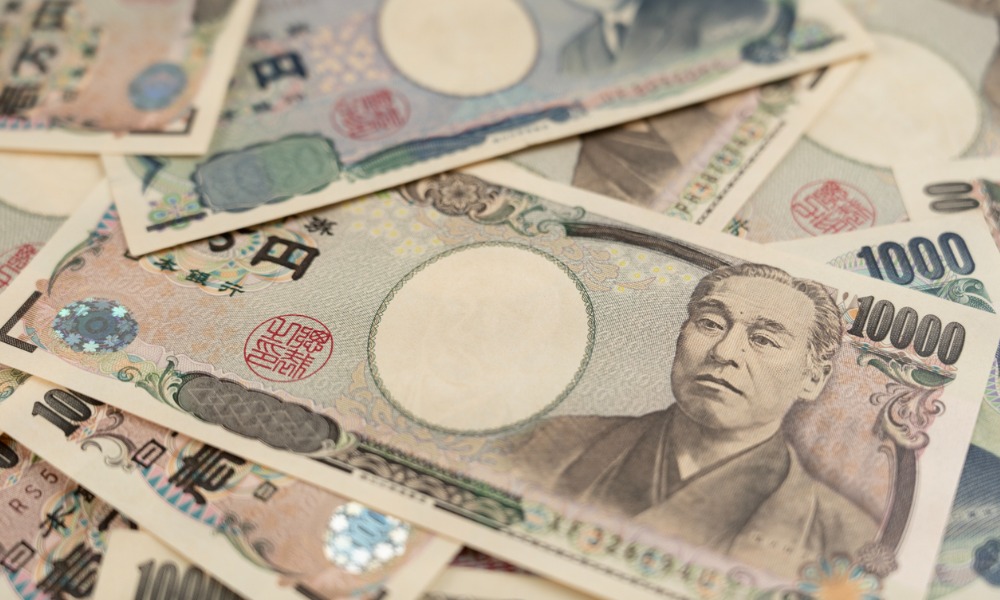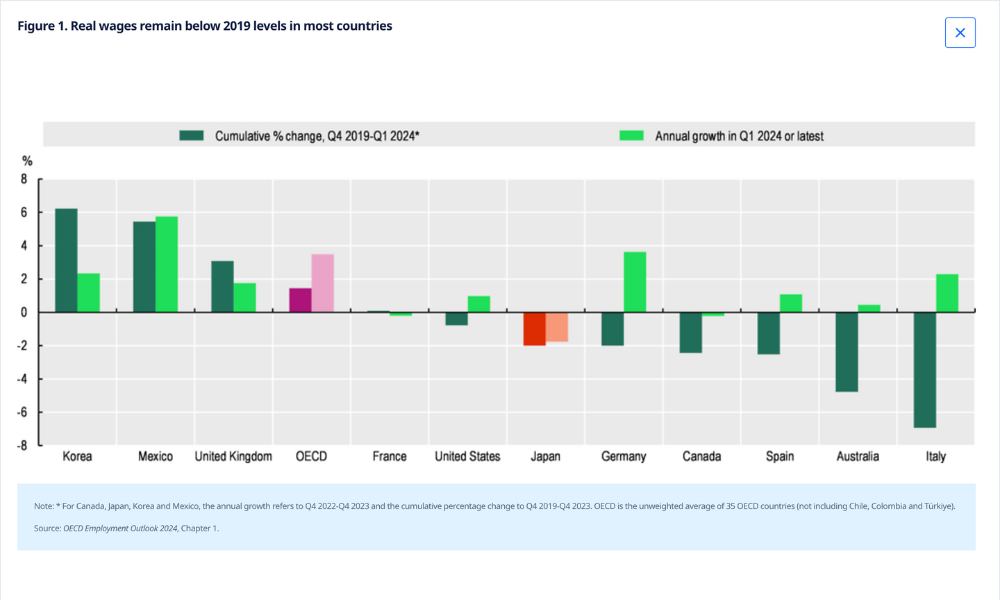
But OECD says latest spring wage negotiations expected to make changes to real wages

Real wages in Japan cumulatively declined by two per cent from the fourth quarter of 2019 to the fourth quarter of 2023, according to the latest analysis from the Organisation for Economic Co-operation and Development (OECD).
In its Employment Outlook 2024, the OECD said Japan was the only country that saw real wages decline by more than one per cent.
"Russia's war of aggression against Ukraine and the weakened yen have contributed to pushing headline inflation above 2% since April 2022," the OECD said. "In this context, real wages per capita have declined in Japan continuously for 25 months up to April 2024."
But changes are expected in terms of real wages as the employers and unions sealed a pay hike of about five per cent in their latest spring wage negotiations or shunto.
"The results of Shunto are expected to gradually take effect by August," the OECD said in its country notes.

The OECD Employment Outlook 2024 said Japan is one of the few countries where the annual real wage growth was still negative in Q4 2024.
This is also the case in Belgium, Canada, France, New Zealand, and Sweden, but their real wage decreases were less than one per cent over the year.
Overall, real wages among most OECD countries are now growing year-on-year in the wake of declining inflation. These real wages, however, remain below the 2019 levels on many countries, the OECD said.
"As real wages are recovering some of the lost ground, profits are beginning to buffer some of the increase in labour costs," the organisation added.
"In many countries, there is room for profits to absorb further wage increases, especially as there are no signs of a price‑wage spiral."